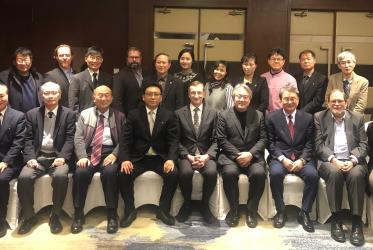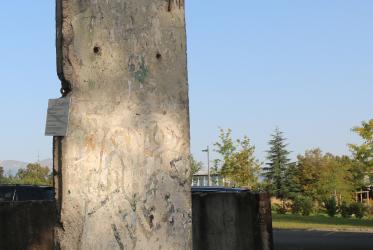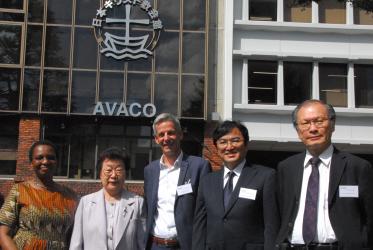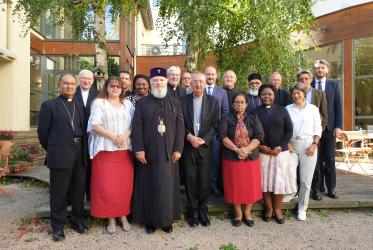Displaying 81 - 100 of 534
Young Africans are eager to grapple with challenges
09 January 2020
Religious leaders keep vision of peace alive on Korean Peninsula
10 December 2019
WCC delegation meets with Korean prime minister
19 November 2019
Tveit: “Love is about the future: Where are we going from here?”
17 November 2019
South Sudan Council of Churches: peace “is a question of the heart”
11 November 2019
Churches in southern Africa stand against violence, xenophobia
10 October 2019
WCC gravely concerned for West Papua
25 September 2019
African religious leaders express new concerns over South Sudan peace
19 September 2019
In Japan, theologians reflect on today’s global manifestations of racism
18 September 2019
Dr Saïd Ailabouni: God is on the side of rejected, oppressed, occupied
12 September 2019











